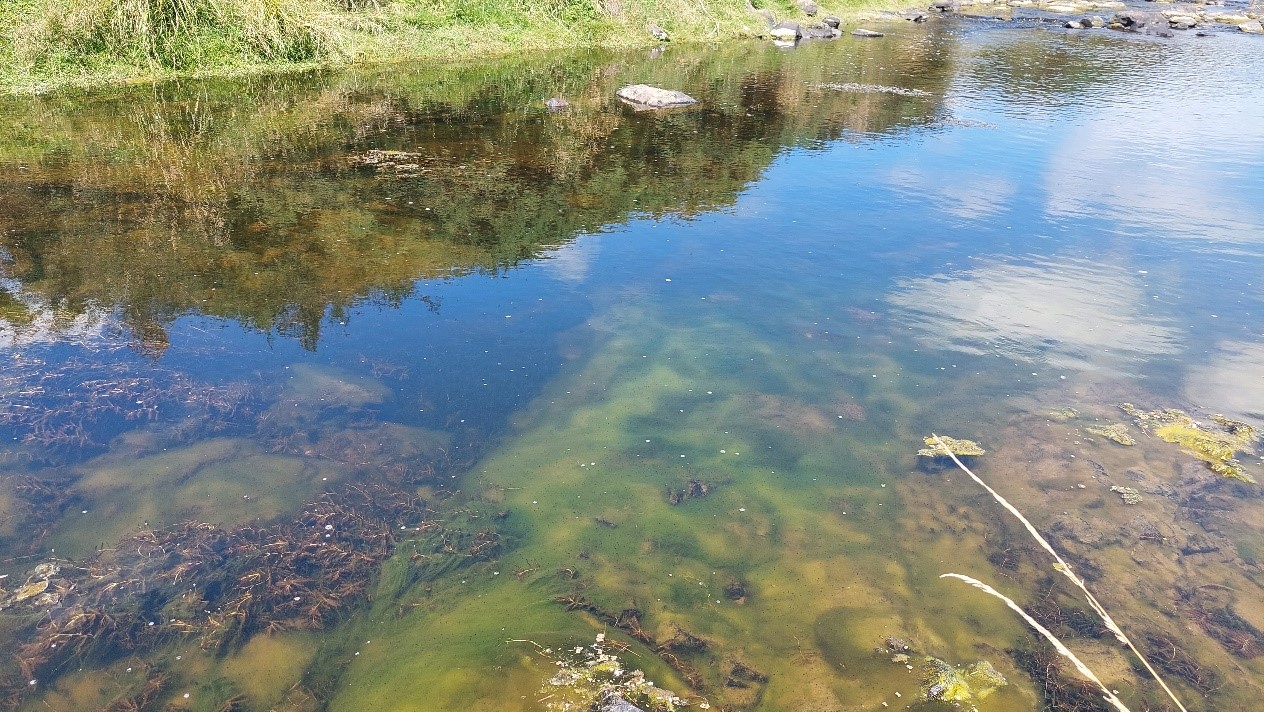The NIWA forecast for the next five weeks is for Otago’s weather to be dryer than in previous years, says ORC’s Manager Compliance, Tami Sargeant.
“Rivers throughout Otago are running low and we need people to conserve water and use water efficiently, if they are taking water from rivers, lakes or streams,” she says.

Low flows in the Waiwera River last week, a tributary on the true right of the Clutha Mata-Au River, upstream from Balclutha township.
Use water efficiently
For the rural sector, Mrs Sargeant says people should be using water as efficiently as possible, starting with preventing leaks in their water troughs or irrigation pipes.
They should be implementing “good practices’’ around irrigation by irrigating when it is cooler, using water efficient irrigators, and ensuring that the depth of water application is correct for the root zone of the crop being grown, Mrs Sargeant says.
Currently there are four rivers where water permit holders have had to comply with consent conditions to cease taking water; from the Waiwera River, Taieri River, along the Maniototo section, Shag River and also the Waitahuna River.
There are several rivers across Otago where water levels are getting close to minimum flows or do not have regulated minimum flows.
ORC response underway
ORC has an active response underway around the declining water levels, with council hydrologists checking the accuracy of the flow sites; with those which are closer to the minimum flows being monitored more frequently.
She says ORC’s Regulatory team has been contacting and monitoring water permit holders.
“Along the Waiwera River ORC staff have gone door to door to talk with farmers that may be taking for stock drinking water or under a permitted activity,” she says.
ORC has had ecologists examining the Waiwera River, which is a tributary of the Clutha/Mata-Au River which runs past Clinton to determine if in-stream values are being adversely affected. The results are not yet in.
Effects on in-stream values of freshwater ecosystems
Mrs Sargeant says the low flows can affect in-stream values of freshwater ecosystems.
That includes waterfowl, invertebrates, native and sports fish, spawning and juvenile rearing areas, and native plants. Low flows can also impact on drinking water supply, recreational, cultural and economic uses; such as farming or factories.
She highlighted that the current low river flows and high temperatures can increase the likelihood of potentially toxic algae forming along riverbanks, which can be deadly to some animals.
Both Otago and Southland have had recent reports of the toxic algae, which had killed at least three dogs, and could possibly have been involved in the death of some ducks recently. Autopsy results on the latter are yet to be released.
Additional information on water flows
ORC Flowphone 0800 426 463
Warning for Waiwera River media release
